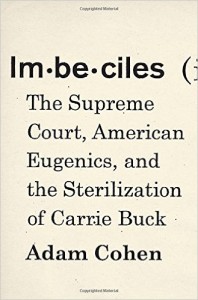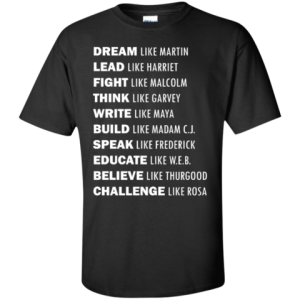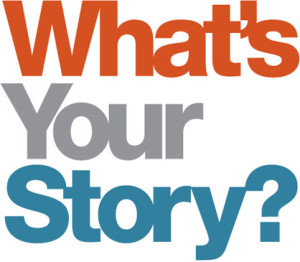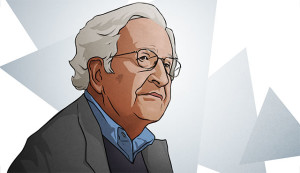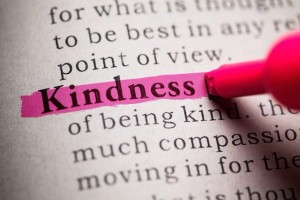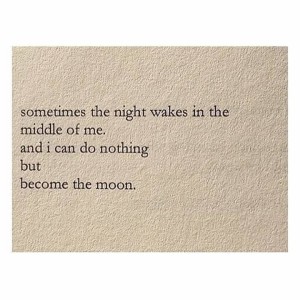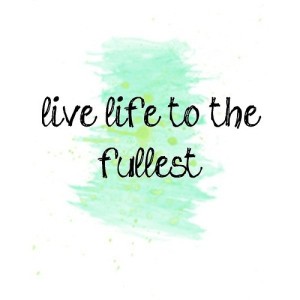1924 Immigration Law & Anne Frank
February 27, 2016‘NPR’s Robert Siegel discusses Adam Cohen’s new book telling the story of the 1927 Supreme Court case Buck v. Bell, the ruling permitted the state of Virginia to sterilize an ‘imbecile’ – – a scientific term of the day.’
—
How many people, ultimately, in the U.S. do we think were sterilized under cover of such laws?
Well, we think about 70,000, which is an extraordinary number. But then, an untold number of other people were just taken away, as Carrie Buck and her mother had been, and kept in colonies so that they couldn’t reproduce. And that’s another kind of punishment that eugenics inflicted on a large number of Americans. You know, there’s one other group that, you know, was very terribly harmed, which is all the people who would’ve immigrated to America but for the 1924 immigration law that was enacted for eugenic reasons. And this intentionally shut off immigration of Jews, Italians and Asians, who were thought to be genetically less gifted, and prevented a lot of Jews from fleeing Nazi Germany. And as we know, some letters came to light some years ago in which Otto Frank wrote to the State Department trying to get visas for his family, including his daughter, Anne Frank. And they were turned down because of this 1924 law. So it’s interesting that when we tell the story of Anne Frank we think that, you know, she died in [Bergen-Belsen] because the Nazis thought that Jews were inferior. But to some extent, she also died in [Bergen-Belsen] because the American Congress thought that Jews and other people like that were inferior and closed the door to them.
http://www.npr.org/2016/02/26/468297940/imbeciles-explores-legacy-of-eugenics-in-america
Voices of compassion.
During a political season laden with polarized vitriol and hateful rhetoric, ‘voices of compassion’ is a reminder of the human heart and the kind thoughts and gestures that bring light to the shadows in life.
Two stories: One of harbored guilt and responsibility for a tragic event in our nation’s history; the other from a man who continues to immerse himself in the studies of addiction to help those caught in a system without support, or care.
NPR
“That was one of the mistakes God made,” Bob Ebeling, now 89, told me three weeks ago at his home in Brigham City, Utah. “He shouldn’t have picked me for that job. But next time I talk to him, I’m gonna ask him, ‘Why me? You picked a loser.’ ”
Jim Sides listened to the NPR story in his car in Jacksonville, N.C.
Other’s listened to this story as well, were touched deeply, and reached out to Bob to offer kindness and encouragement. Here’s a link to their story from All Things Considered.
—
‘It’s a tough sell on two sides. No. 1, it’s a tough sell for people who suffer from addiction. It’s tough to hear, “I’m sorry, we don’t have a cure. You can’t get detoxed, go away for 30 days, get your head straight and not be affected.” Same is true for diabetes. There is no place that I know of that gives you 30 days of insulin treatment and a hearty handshake and sends you off to a church basement. It just won’t work, so that’s tough.’
For researcher A. Thomas McLellan, who has spent his entire career studying substance abuse, the shift is a welcome one, though it has come frustratingly late.
McLellan is co-founder of the Treatment Research Institute in Philadelphia and former deputy director of the White House Office of National Drug Control Policy. His work has focused on understanding addiction as a disease and improving the ways it is treated, a mission that took a personal turn midway through his career when he lost a son to overdose.’
Intuition.
February 26, 2016That’s what people call successful decision making that happens without a narrative.
Intuition isn’t guessing. It’s sophisticated pattern matching, honed over time.
Don’t dismiss intuition merely because it’s difficult to understand. You can get better at it by practicing.
-Seth Godin
#blackhistorymonth
February 25, 2016Life on the Mobius Strip.
February 23, 2016Parker Palmer:
‘If you take your index finger and trace what seems to be the outside surface, you suddenly find yourself on what seems to be the inside surface. Continue along what seems to be the inside surface, and you suddenly find yourself on what seems to be the outside surface.
I need to keep saying “what seems to be” because the Möbius strip has only one side! What look like its inner and outer surfaces flow into each other seamlessly, co-creating the whole. The first time I saw a Möbius strip, I thought, “Amazing! That’s exactly how life works!”
Whatever is inside of us continually flows outward, helping to form or deform the world — depending on what we send out. Whatever is outside us continually flows inward, helping to form or deform us — depending on how we take it in. Bit by bit, we and our world are endlessly re-made in this eternal inner-outer exchange.
Much depends on what we choose to put into the world from within ourselves — and much depends on how we handle what the world sends back to us. As Thomas Merton said:
“We don’t have to adjust to the world. We can adjust the world.”
Here’s the question I’ve been asking myself ever since I understood that we live our lives on the Möbius strip:
“How can I make more life-giving choices about what to put into the world and how to deal with what the world sends back — choices that might bring new life to me, to others, and to the world we share?”
Email/verbal etiquette.
From themuse.com
‘8 Common Communication mistakes(we don’t know we’re making)’
- Don’t abuse the subject line. If you’re starting a new conversation, start a new email chain. (U.S. News)
- Don’t send an email when you need an urgent reply. It’s unreasonable to expect one—instead try calling, instant messaging, or talking in person. (Lifehack)
- Don’t make huge hand gestures. They actually make you seem less powerful. (Business Insider)
- Don’t use buzzwords. Speaking in clear, direct language does much for your credibility. (MediaBuzz)
- Don’t use a one-size-fits-all style. When talking to a group of people, you should use a variety of communication techniques to make sure you hit every type of listener. (Inc.)
- Don’t ask conversational dead ends. Questions that can be responded to in two words don’t lead to meaningful conversations. (CareerBright)
- Don’t apologize when it’s not your fault. It’s a conversational filler that has you accepting responsibility—and blame—you don’t deserve. (The Daily Muse)
- Don’t finish people’s sentences. Rather than making you appear in sync, it just makes you seem impatient for them to finish. (Business Insider)
The realest thing in our lives…
February 20, 2016…are the stories we invent.
We live with these stories, we remind ourselves of them, we perfect them.
And, happily, if you don’t like the story you’re telling yourself, you can change it.
-Seth Godin
Rumi.
February 18, 2016I don’t even know if I am or I am not.
When I think I am, I find myself worthless,
when I think I am not, I find my value.
Like my thoughts, I die and rise again each day.
☆☆¸.•*¨*•☆☆•*¨*•.¸¸☆☆
Space Archeology Embraces Transdisciplinarity
February 17, 2016An ‘engaged populace’ is a primary driver of transdisciplinarity – – there is a growing public demand to be included in scientific practices and for the scientific community to seek a ‘shared vision’ or ‘contract with the public.’ Transdiciplinarity is a holistic and synergistic approach to studying an issue or problem – – it is issue, or problem generated, not discipline-driven.
Space archeology from a transdiciplinary perspective embraces science, philosophy, sociology, cultural studies, technology, and public input. Geograhic boundaries will be crossed to discover, study, and preserve global archeological sites.
This report NPR:
‘Sarah Parcak is a space archaeologist. She uses satellite imagery to track looted ancient burial sites and find pyramids hidden under Egyptian cities. Now, she has bigger plans: to launch a worldwide campaign to make all of us space archaeologists.
She will be doing it through a digital platform called Global Xplorer, that will utilize crowdsourcing and satellite images to discover and protect unknown archaeological sites around the world.
Her ultimate goal is to launch it globally, with the app hosting different languages.
“We’re answering the big questions about who we are and where we’ve come from,” she says. “And the fact that we can get the world to be a part of that is pretty exciting.”‘
Noam.
“We can be pessimistic, give up and help ensure that the worst will happen,” says Noam Chomsky. “Or we can be optimistic, grasp the opportunities that surely exist and maybe help make the world a better place.”
Why I choose Optimism Over Despair: An Interview with Noam Chomsky
‘Noam Chomsky, one of the world’s most influential linguists (the same prolific scholar known around the world for his trenchant critiques of US foreign policy and critical analyses on a wide range of social and political issues), has also been preoccupied for much of his life with the perennial question of what kind of creatures we are. His pathbreaking contributions to the field of linguistics have considerably advanced our understanding of the human mind, which has in turn influenced a diverse area of studies, ranging from cognitive science and computer science to philosophy and psychology.’
Random Acts of Kindness Week
February 15, 2016‘Did you know that people who are kind produce 23% less cortisol (the stress hormone) and age slower than the average population? It’s true. Engaging in acts of kindness actually lowers blood pressure and reduces stress.
Science also shows that being kind rewards everyone with increased energy and well-being–even people viewing the kindness are infused with positive benefits.
This year, The Random Acts of Kindness Foundation is asking individuals to sign a Kindness Pledge and spread the word via social media about their #Pledge2BeKind. The organization would also like to collect as many personal stories as possible.’
Berlin.
February 14, 2016
Assistants of Chinese artist Ai Wei Wei decorate the columns of Berlin’s Konzerthaus with lifejackets, on February 13, 2016, as part of an installation intended to remind people of the ongoing refugee crisis.
The Cinema for Peace gala will be held at the Konzerthaus on February 15, 2016, on the sidelines of the Berlinale Film Festival.
The Independent
Last year, more than one million people fleeing war and persecution in Syria, Afghanistan and further afield were thought to have made dangerous journeys by sea and overland to Europe.
More than 400 people have already died trying to make the perilous sea crossing so far in 2016.
Last month Ai WeiWei pulled out of a planned show in Denmark in protest against a recently passed law which allows the state to confiscate refugees’ valuables as part payment for asylum seek services.
Susan’s list.
February 12, 2016From Susan Sarandon who recently returned from the shores of migrating refugees. She offers these reputable agencies to send aid.
“Many of you have been asking about ways you can help the refugees in Lesvos. Here are just a few of the many groups that I worked with when I was there where donations would be put to good use.”
Dirty Girls of Lesvos Island
“When the refugees arrive on Lesvos in unstable, overcrowded boats, they are drenched with sea water. They are given new clothes and their perfectly good, but wet clothes, are discarded and have mostly been trashed, therefore adding to the environmental problems of landfill on Lesvos. Dirty Girls collects the clothes and have them laundered at a commercial laundry. They are sorted and distributed so that they can be reused.”
https://www.facebook.com/dirtygirlslesvos/
—
PROEM – AID
“A nonprofit Spanish search and rescue association made up of emergency professionals doing sea rescue in Lesvos. All work for free, pay their own way and are on call 24/7. Their only expenses are to keep the boats on the water.”
https://www.facebook.com/dirtygirlslesvos/
—
Because We Carry
“A Dutch organization that collects baby carriers and Baby Björns for refugee mothers.”
—
Off Track Health – Moria Medical Center
“A volunteer-run medical center near Moria Camp where doctors provide aid to new refugee arrivals on Lesvos.”
☆☆¸.•*¨*•☆☆•*¨*•.¸¸☆☆
February 10, 2016Gaia.
February 9, 2016“Every tree, every plant, has a spirit. People may say that the plant has no mind. I tell them that the plant is alive & conscious. A plant may not talk, but there is a spirit in it that is conscious, that sees everything, which is the soul of the plant, its essence, what makes it alive. The channels through which the water & sap move are the veins of the spirit.”
– Pablo Amaringo
Is this America?
February 8, 2016Donated water from all over the country being delivered to Flint, Michigan:
“That’s amazing, I’m proud of us, human beings. I was not liking humans for a while there!”
Almost in the same breath, she asks:
“Is this America? I am stupefied that I’m not in, like, Ethiopia or somewhere. You’re talking about clean water.”
She believes her sons are experiencing developmental issues and skin rashes due to the lead in the drinking water that has gone undetected for so long.
NPR will conduct a longitudinal study/reports on the effects of lead in Flint’s water system.
Ahimsa in action.
The Yoga Sutra is not presented in an attempt to control behavior based on moral imperatives. The sutras don’t imply that we are “bad” or “good” based upon our behavior, but rather that if we choose certain behavior we get certain results. If you steal, for example, not only will you harm others, but you will suffer as well.
The first yama is perhaps the most famous one: ahimsa, usually translated as “nonviolence.” This refers not only to physical violence, but also to the violence of words or thoughts. What we think about ourselves or others can be as powerful as any physical attempt to harm. To practice ahimsa is to be constantly vigilant, to observe ourselves in interaction with others and to notice our thoughts and intentions. Try practicing ahimsa by observing your thoughts when a smoker sits next to you. Your thoughts may be just as damaging to you as his cigarette is to him.
It is often said that if one can perfect the practice of ahimsa, one need learn no other practice of yoga, for all the other practices are subsumed in it. Whatever practices we do after the yamas must include ahimsa as well. Practicing breathing or postures without ahimsa, for example, negates the benefits these practices offer.
http://www.yogajournal.com/article/yoga-101/beginning-journey/
“…the worst and the best of humanity.’
February 5, 2016“My life will never be long enough to thank him for what he did.”
He is a Muslim of North African origin who grew up in a gritty neighborhood outside Paris. Most of the killers that night came from similar backgrounds. But Didi says a twisted ideology, and not their backgrounds, turned those men into killers.
NPR
‘I wish I’d been happier.’
February 4, 2016The most common regrets of the dying, according to a palliative care nurse.
The Independent.
A palliative care nurse has revealed the most common regrets from her patients.
In her book “Top 5 Regrets of the Dying”, Bronnie Ware says she found that nearly all of her patients were more concerned with the relationships they had built with others and being truly happy than they were with money, fame or success.
Ware says: “People do want to get their financial affairs in order if possible. But it is not money or status that holds the true importance to them… It all comes down to love and relationships in the end.”
1. I wish I’d had the courage to live a life true to myself, not the life others expected of me
This was the most common regret – people whose lives are almost over will often pay attention to what they failed to do in the time they had.
Ware found that most people had not realised even half of their dreams, and knew that it was because of choices they’d made.
2. I wish I didn’t work so hard.
Every male patient had this regret. They felt they had spent less quality![]() time with their families – missing their children growing up, and not spending enough time with their partners.
time with their families – missing their children growing up, and not spending enough time with their partners.
3. I wish I’d had the courage to express my feelings.
Many patients felt that they had repressed their feelings in order to keep the peace with others. Ware said that many had developed illnesses relating to the resentment they felt as a result of hiding their true feelings.
4. I wish I had stayed in touch with my friends.
It can be hard to keep in touch with old friends when life gets in the way, and it is not uncommon to forget people as you go about your everyday routine.
Dying patients didn’t truly realise how much they valued their friends until it was too late, by which point they had lost contact and it was not possible to track down old friends.
5. I wish I had let myself be happier.
Many did not realise until they were dying that happiness is a choice you make, Ware found. Fear of change, pleasing others and the general habits and patterns they formed in life had prevented them from true happiness.
Ware says: “When you’re on your deathbed, what others think of you is a long way from your mind. How wonderful to be able to let go and smile again, long before you are dying. LIfe is a choice. It is your life. Choose consciously, choose wisely, and choose honestly. Choose happiness.”
